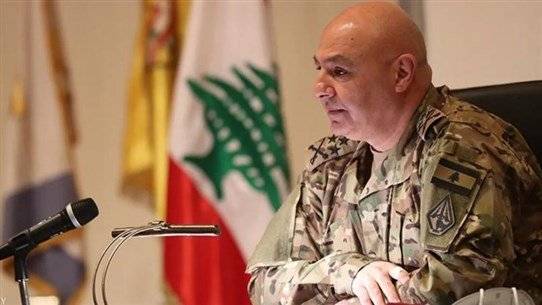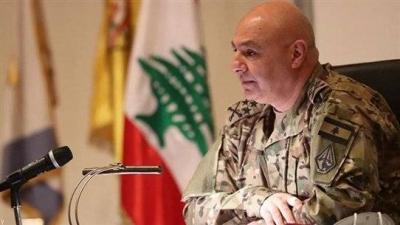The competition for the presidency in Lebanon has widened the gap between Christian political forces, which have not yet agreed on a single candidate, with about a hundred days remaining until the end of President Michel Aoun's term. There remains an "uncertain position" from the head of the "Free Patriotic Movement," MP Gebran Bassil, regarding his candidacy for the position, and efforts are being made by the head of the "Mardini Movement," Sleiman Frangieh, to garner support. The name of Army Commander General Joseph Aoun has emerged as a compromise candidate, amidst discussions that have not yet moved beyond generalities and characteristics between allied forces.
Most political forces are hopeful that the electoral process will proceed on schedule unless an emergency arises. This conviction is based on an internal belief that proposed names have begun to narrow as the deadline for parliament to become an electoral body approaches in early September. This belief is also supported by "international pressures similar to those exerted before the last parliamentary elections to conduct the electoral process on time," alongside "positive regional messages about the need to reach a formula that allows for the election of a president," according to parliamentary sources tracking the ongoing international and local movements.
The sources emphasize that the international atmosphere is "comfortable," and there are significant powers' interests in political stability in the country that allows for investments, preventing the country from sinking into failure if there is a state in place. These indicators coincide with the "comfortable atmosphere" observed by the local business elite amid international pressures in this direction. The sources affirmed the necessity of reaching an agreement on specifications before choosing a name, "to prevent any party from vetoing any name." Accordingly, they view the president as being "obligated to be a compromise."
Under these conditions, the chances of natural candidates from party leaders diminish unless they engage in political settlements and rally wide support, which should also include Christian forces. While intensive negotiations among political forces have yet to commence regarding the file, "Hezbollah" has not announced any position thus far. The support for Sleiman Frangieh depends on Gebran Bassil, which remains unclear at this moment, as inferred from Bassil's recent statements. In an interview with the "Manar" TV station on Friday night, Bassil stated, "I can be a president or a maker of a president depending on the circumstances," noting that he is a "natural candidate" as a Maronite and the head of the largest parliamentary bloc. He added: "I do not become a presidential candidate unless I announce that or take action for it." While he affirmed, "I see no reason to support Frangieh due to differences on internal matters," despite agreement on strategic issues, he said, "I know that we should not exclude any possibility, and we can agree with Frangieh and those close to him politically on one candidate or with the 'Forces' on another... But the primary concern for me is that if it is not us, we must transfer our representation to someone else, but it is entirely rejected for someone with no representation or with no transferred representation to come to the presidency."
Electing the president requires securing a parliamentary quorum of two-thirds, and selecting the president in the first round with a two-thirds majority, which leads political forces to underscore the necessity of not boycotting the session. Many see that prior agreements will facilitate securing the quorum and votes for the next president. On the side of the "Progressive Socialist Party," its leader Walid Jumblatt announced that he does not support the rise of Bassil and Frangieh, as Jumblatt is advocating for the election of a president who is not affiliated with a political party, according to sources from the "Socialist Party," which emphasize that Jumblatt's position is "clear regarding choosing a president capable of addressing Arab countries and the international community." The sources indicated that the socialist has "not delved deeply into names, and discussions about the form and criteria have not yet entered into depth before 40 days from the start of the election process," stressing the necessity for all blocs to attend presidential election sessions and not boycott them to reach the election of a new president.
In the midst of the current lack of clarity, the name of Army Commander General Joseph Aoun is being proposed for the presidency, which would require a constitutional amendment if agreed upon. However, the army commander does not address this issue in any of his statements or meetings, and sources close to the Ministry of Defense tell "Asharq Al-Awsat" that he is focused on securing the livelihoods of military personnel and providing suitable conditions for them health-wise and living-wise in order to maintain stability in the country. The military institution, despite suffering from resource shortages and deteriorating salary values and increased needs, is among the few institutions that maintain their continuity and carry out their missions throughout the country "through his efforts and ongoing follow-ups with soldiers and officers."
In political circles, however, the situation looks different, as General Joseph Aoun's name is presented as a neutral, non-partisan presidential figure, among the non-partisan options. Although he has not been considerate of political forces in appointments and assignments during his tenure, some view this experience as a possible factor for facilitation, while others see it as an obstacle, according to Lebanese experiences. Sources monitoring the army commander's relationships with political forces note that previously he "did not care about political criticisms when he appointed officers to sensitive positions," including appointing intelligence chiefs in more than one region without consulting influential political forces in those regions. In response to assessments suggesting that "Hezbollah" places a veto on the army commander's name, sources say his relationship with the party is normal, and his relations and communications with any of the political forces have not ceased. They clarify concerning the relationship with the party: "There has been no tension in their relationship, and there is no reason for tension between them, as both the party and the army commander know that the Southern issue is an international file, and the army is carrying out the tasks stipulated in international resolutions and the mandate given to it by the Lebanese government. As for the issue of maritime border demarcation with Israel, the army has not been concerned with that file since the conclusion of the last round of indirect negotiations in May 2021."




